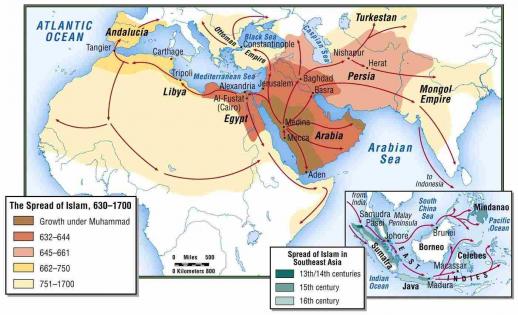The second historical era that is frequently linked to the emergence of a Western race concept is the age of European colonization and slavery in Africa, the Americas, and Asia. If the medieval Spanish experience gave Europeans a new way to think about human differences—as a matter of inherited, fixed bodily characteristics—and even gave us a word for it (the English term “race” appears only in the 1500s, a relatively recent loan word from Spanish)—then European imperialism provided the spectrum of peoples who would be fit into this new, essentialist hierarchical model. Deeply immersed in economic, political, and religious conquest and expansion, Europeans were quick to develop theories and rationales that justified their subjugation of non-European peoples. Such people were said to be naturally inferior to Europeans—physically, intellectually, culturally, and morally—and therefore it was reasonable and even desirable to conquer, enslave or exterminate them. “Race” was a major ideological excuse that sanctioned one of the most far-reaching political, economic and social transformations the world has ever known.
Although this historical account of the construction of the race notion in the West is widely accepted, disagreement exists about whether it describes the only instance in which a human society invented a race-like belief. Increasingly, scholars have suggested that race thinking has emerged at different times in different places. Ian Hacking argues that racial beliefs are often fostered by situations of conquest—where different groups of people are thrust together in one larger political territory—and that early modern European colonization in Africa, Asia and the Americas is not the only example of this. Historian Bernard Lewis contends that the expansion of Islam, beginning in the 630’s and spreading from the Arabian peninsula into Africa, Asia and Europe, also gave rise to its own version of the race concept. Similarly, Bruce Hall claims that people living in the African Sahel region (i.e. to the south of the Sahara desert) forged their own racial categories due to their encounters with Arab Muslim conquerors, well before European colonizers appeared on the scene. In short, as scholars begin to move beyond the history of the West, they are increasingly posing the question of whether race—that is, a system of classifying people in groups based on the permanent, inherited characteristics they are believed to embody—is a one-time, Western invention or whether it has been created in imperial societies again and again over the course of human history.


